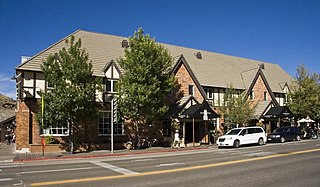
Canadian whisky is a type of whisky produced in Canada. Most Canadian whiskies are blended multi-grain liquors containing a large percentage of corn spirits, and are typically lighter and smoother than other whisky styles. When Canadian distillers began adding small amounts of highly-flavourful rye grain to their mashes, people began demanding this new rye-flavoured whisky, referring to it simply as "rye". Today, as for the past two centuries, the terms "rye whisky" and "Canadian whisky" are used interchangeably in Canada and refer to exactly the same product, which generally is made with only a small amount of rye grain.

Hypericum perforatum, known as perforate St John's-wort, common Saint John's wort and St John's wort, is a flowering plant in the family Hypericaceae. Although used as a medicinal herb with possible antidepressant activity, high-quality clinical evidence for such effects is limited. The plant is poisonous to livestock.

Hypericum is a genus of flowering plants in the family Hypericaceae. Hypericum is unusual for a genus of its size because a worldwide taxonomic monograph was produced for it by Norman Robson. Robson recognizes 36 sections within Hypericum.

Hypericaceae is a plant family in the order Malpighiales, comprising six to nine genera and up to 700 species, and commonly known as the St. John’s wort family. Members are found throughout the world apart from extremely cold or dry habitats. Hypericum and Triadenum occur in temperate regions but other genera are mostly tropical.

Jim Beam is a brand of bourbon whiskey produced in Clermont, Kentucky, by Beam Suntory, a subsidiary of Suntory Holdings of Osaka, Japan. It is one of the best-selling brands of bourbon in the world. Since 1795, seven generations of the Beam family have been involved in whiskey production for the company that produces the brand, which was given the name "Jim Beam" in 1933 in honor of James B. Beam, who rebuilt the business after Prohibition ended. Previously produced by the Beam family and later owned by the Fortune Brands holding company, the brand was purchased by Suntory Holdings in 2014.

In brewing and distilling, mashing is the process of combining a mix of grains – typically malted barley with supplementary grains such as corn, sorghum, rye, or wheat – known as the "grain bill" with water and then heating the mixture. Mashing allows the enzymes in the malt to break down the starch in the grain into sugars, typically maltose to create a malty liquid called wort. The two main methods of mashing are infusion mashing, in which the grains are heated in one vessel, and decoction mashing, in which a proportion of the grains are boiled and then returned to the mash, raising the temperature. Mashing involves pauses at certain temperatures and takes place in a "mash tun" – an insulated brewing vessel with a false bottom.

Hyperforin is a phytochemical produced by some of the members of the plant genus Hypericum, notably Hypericum perforatum. Hyperforin is attributed to provide the main antidepressant effect of St. John's wort, although there is limited clinical evidence that hyperforin and St. John's wort have any effect on depression.
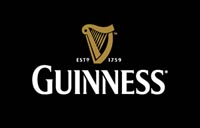
St. James's Gate Brewery is a brewery founded in 1759 in Dublin, Ireland, by Arthur Guinness. The company is now a part of Diageo, a British company formed from the merger of Guinness and Grand Metropolitan in 1997. The main product of the brewery is Guinness Draught.
Distillers grains are a cereal byproduct of the distillation process. Brewer's spent grain usually refers to barley produced as a byproduct of brewing, while distillers grains are a mix of corn, rice and other grains.
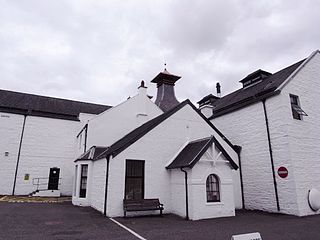
Dalwhinnie Distillery, situated in the Highland village of Dalwhinnie in Scotland, produces Single Malt Scotch Whisky. Dalwhinnie refers to its own whisky as a Highland Whisky but as it is located within both the Highland and Speyside region it can legally be called either a Highland or Speyside whisky. It is owned by Diageo.
The Distillers Company Limited was a leading Scottish drinks and pharmaceutical company which at one time was a constituent of the FTSE 100 Index. It was taken over by Guinness & Co. in 1986 in a transaction which was later found to have involved fraudulent activity, becoming known as the Guinness share-trading fraud.
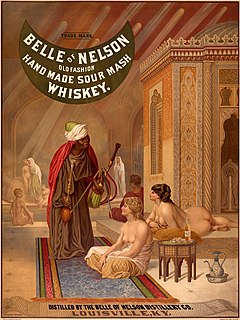
Sour mash is a process used in the distilling industry that uses material from an older batch of mash to start the fermentation of a new batch, analogous to the making of sourdough bread with a starter. The term can also be used as the name of the type of mash used in that process, and a Bourbon made using this process can be referred to as a sour mash Bourbon. Despite a common misconception, sour mash does not refer to the flavor of the Bourbon.
The Midleton distilleries complex is situated in Midleton, County Cork, Ireland. It is owned by Irish Distillers, a subsidiary of Pernod Ricard. Located alongside is the Old Midleton Distillery, which was established in the early 17th century and now operates as a visitor centre known as the James Experience.
Glen Elgin distillery is a Scotch single malt whisky distillery.
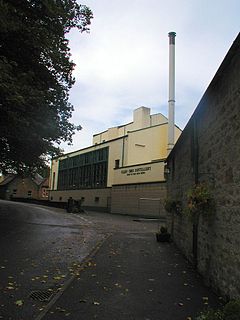
Glen Ord is a whisky distillery in the Scottish Highlands and is the only remaining single malt scotch whisky distillery on the Black Isle. Its principal product is an eponymous 12-year-old single malt whisky. The distillery won awards for the best single malt at the International Wine and Spirit Competition in 1994 and 1996, and at the Monde Selection in 1996 and 1997. However, IWSC and Monde Selection awards are non-competitive and only products that pay to enter are judged.

William Gooderham Sr. was a Canadian distiller, businessman, and banker. He was the founder of the Gooderham and Worts company.

Gooderham and Worts, also known as Gooderham & Worts Limited, was a Canadian distiller of alcoholic beverages. It was once the largest distiller in Canada. The company was merged with Hiram Walker, which was in turn sold to Allied Lyons. Its distillery facility on the Toronto waterfront was closed in the 1990s. The buildings, dating to the 1860s, were preserved and repurposed as the "Distillery District" arts and entertainment district.

Hypericum aegypticum, also known as Egyptian Saint John's wort, is an evergreen shrub or shrublet in the section Adenotrias of the genus Hypericum. Less frequently, dwarf Saint John's wort is used as an alternate name.
Master distiller is a title often used for a distilling expert or a key leader or owner at modern distilleries. The title doesn't have a fixed definition and can mean different things at different companies. Although the craft of distilling has existed for centuries throughout history, the term "master distiller" only dates back as far as the 1800s when it was first used to acknowledge the distilling expertise and knowledge a person gained after practicing and perfecting the craft of distilling for many years. In more recent usage, the term can have a much broader meaning and is sometimes used for owners and company leaders who run their companies but do not actively create the distilling recipes and processes used at their distilleries.


